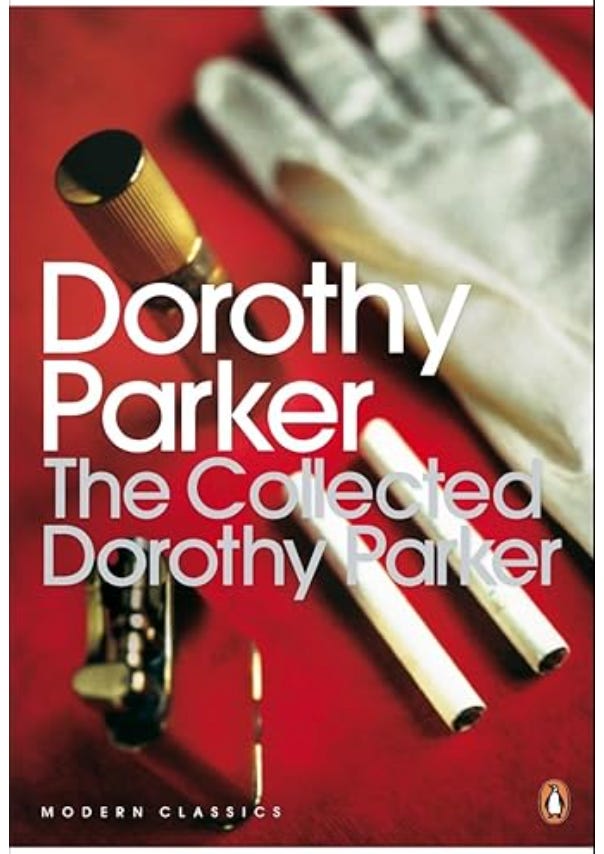“Hillary, Darling, Where Did Your Spine Go?” — Dorothy Parker on the Art of Vanishing
Dorothy Parker Skewers Hillary Clinton’s Silence with Wit, Wine, and Razor-Sharp Satire
Transmission received via ChronoTranscriptor™ — frequency laced with gin, typewriter ribbon, and the distant sigh of disappointed feminists.
[Interview Begins]
Host: Ms. Parker, welcome. We’ve summoned you today to reflect on the silence of Hillary Clinton—particularly as democracy trembles, immigrants suffer, and authoritarianism finds new admirers.
Dorothy Parker: I adore a good vanishing act, darling—but only when performed by stage magicians and houseguests. Hillary’s version feels more like political taxidermy. She’s present in form, but the soul left years ago.
Host: Some suggest she's being cautious—avoiding political backlash, or perhaps trying not to fuel the "lock her up" chants.
Dorothy Parker: Oh, please. If you're afraid of the mob, you shouldn't run for queen of the village.
Let’s not forget, Hillary once declared “human rights are women’s rights”—and then promptly wandered off when those rights got shoved into detention centers.
If I wanted a role model for strategic retreat, I’d interview a turtle.
Host: What would you say to her, if she were listening now?
Dorothy Parker: I’d say: Hillary, sweetheart, if you're going to fade into the wallpaper, at least make it floral.
But honestly? This is bigger than you. You were the First Lady. A senator. Secretary of State. You’ve dined with kings and dodged scandal like a matador—but now, when the stakes are highest, we get vague tweets and book tours?
A woman with a resume that long shouldn’t be this quiet. Unless, of course, she’s rehearsing for a part in a political ghost story.
Host: Do you believe she owes something more to the country?
Dorothy Parker: Of course she does. We all do. But when you've positioned yourself as the standard-bearer of reason, the glass-ceiling slayer, you don’t get to slink away when the roof collapses.
She once stood on a stage and said, “I’m with her.”
Well, I’d like to know who she’s with now. Because from where I’m seated, it looks like she’s with no one but her literary agent.
Host: Some defenders argue she’s done enough—she’s paid her dues, taken her hits. Isn’t she entitled to some peace?
Dorothy Parker: Entitled? The only thing any of us are entitled to is a swift drink and the occasional cry under our desk.
Let me be blunt: This isn’t about peace. This is about responsibility.
If Hillary Clinton is waiting for the perfect moment to reappear, she should know—democracy doesn’t hand out invitations with RSVP dates.
Host: Final thoughts?
Dorothy Parker: Silence is golden, yes. But in Hillary’s case, it’s beginning to look like a retirement plan.
And as the country stumbles toward madness, I suggest she remember one thing:
You can’t be a symbol and a shadow at the same time.
Dorothy Parker, more than any of her contemporaries, captured the restless spirit and sharp contradictions of her age. The decadent 1920s and 1930s in New York were an era of bold experimentation, especially for women. For the wealthy, life appeared to be an endless celebration—but beneath the glittering surface lay emotional turmoil and disillusionment.
With her biting wit and unflinching insight, Parker dissected the social mores of her time, exposing the shadows behind the champagne. Her life embodied this duality: celebrated as one of the most talked-about women of her day, she was also described as “a masochist whose passion for unhappiness knew no bounds.” Philosopher Irwin Edman called her “a Sappho who could combine a heartbreak with a wisecrack.”
This volume gathers Parker’s dissection of the Jazz Age—through poetry, short stories, criticism, and reviews—offering a portrait of a woman whose brilliance illuminated both the excesses and the emptiness of her generation. More information…




